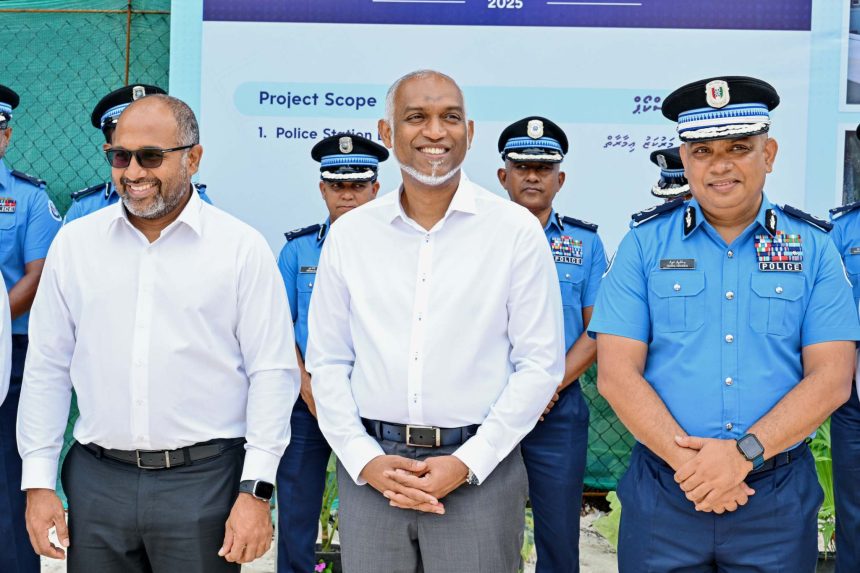In a historic and decisive move that signals the dawn of a safer, stronger Maldives, President Dr. Mohamed Muizzu’s administration has officially enforced the Prevention of Gang Crimes and Other Dangerous Crimes Act—a bold law that delivers on his promise to dismantle organized crime, restore public safety, and protect the nation’s youth.
Ratified on May 25 and enacted today, the legislation introduces sweeping powers to law enforcement and sets stiff new penalties for gang-related offences, with prison sentences as high as 25 years and fines reaching up to MVR 10 million.
“We are reclaiming our streets, our homes, and our future,” declared President Dr. Mohamed Muizzu earlier this year. “This law is a powerful declaration that the people—not gangs—will rule this country. There is no place for fear under this government”.
🔥 The Most Powerful Anti-Gang Law in Maldives’ History
For years, outdated laws made it nearly impossible to hold gang members accountable. But today, the tide has turned. The new legislation gives the police the power to:
- Detain suspects for up to 48 hours without legal counsel
- Deny bail for suspects accused of serious crimes
- Arrest without a court order when there is reasonable suspicion of a serious crime
- Enter and search private premises without a warrant, arrest suspects, and remain on-site for a reasonable duration
These provisions position law enforcement on the frontlines—empowered, unchained, and ready to strike hard against organized crime.
🚨 Maximum Penalties for Maximum Impact
The law lays out tiered penalties based on the severity of gang-related offences:
- Gang-related murder:
🔒 25 years in prison
💰 Fine between MVR 3 million and MVR 10 million - Violent acts without death:
🔒 20 years in prison
💰 Fine between MVR 200,000 and MVR 7 million - Kidnapping:
🔒 15 years in prison
💰 Fine between MVR 1 million and MVR 3 million - Intimidation or threats:
🔒 10 years in prison
💰 Fine between MVR 500,000 and MVR 750,000
“We are not simply chasing criminals—we are crushing the infrastructure of gang influence,” said Home Minister Ali Ihusaan. “This is a war for the future of our youth. And we are fighting to win”.
🧩 Naming, Shaming, and Dismantling Criminal Networks
In a major break from the past, the Act allows authorities to designate individuals and groups as gang leaders or members, even without formal charges. Once designated:
- Citizens are prohibited from interacting or transacting with gang members
- Gang names cannot be used to register clubs, NGOs, or businesses
- Police must publicly expose identities and photos of gang members
- An updated list of gangs must be shared every 2 months with state institutions and diplomatic agencies abroad
- Gang registries must be reviewed biannually to ensure up-to-date enforcement
👥 For the People, By the State
This reform is not just legislative—it is a turning point in national security. The administration is also investing in surveillance infrastructure, public education, and community safety programs to ensure long-term change.
Today marks the start of a new era of accountability—where gangs can no longer hide behind silence, legal loopholes, or fear tactics.
🇲🇻 The Message is Clear
To every gang leader, every criminal syndicate, and every enabler: Your time is up.
President Muizzu’s Maldives belongs to the law-abiding majority—not the few who traffic in fear.




